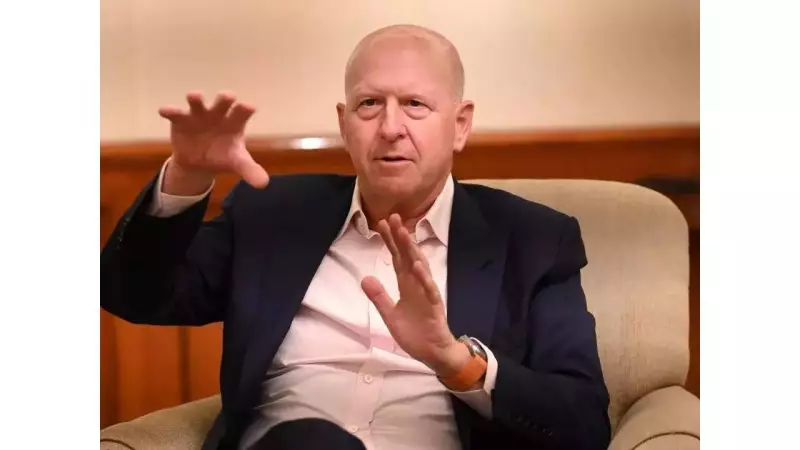
In a candid revelation that's sending shockwaves through the financial world, Goldman Sachs CEO David Solomon has delivered a sobering assessment about the impact of artificial intelligence on employment. Contrary to the optimistic narrative pushed by many tech evangelists, Solomon believes the reality is far more complex and challenging.
The Unvarnished Truth About AI and Jobs
During recent discussions about the bank's strategic direction, Solomon addressed the elephant in the room: what happens to employees when AI takes over their roles? His response was strikingly honest. "We will find new jobs? I don't believe that," the CEO stated, directly challenging the conventional wisdom that technological advancement naturally creates replacement employment.
Goldman Sachs' AI Transformation Journey
The banking giant has been aggressively implementing AI across various operations, from investment banking to back-office functions. This technological overhaul has already led to significant workforce reductions, particularly in roles involving repetitive tasks and data analysis.
Solomon's comments highlight a growing tension in the corporate world. While companies race to adopt AI for competitive advantage, they're grappling with the human cost of this transition. The Goldman Sachs chief emphasized that the displacement isn't temporary but represents a fundamental shift in how financial institutions operate.
Industry Implications and Broader Impact
This admission from one of Wall Street's most influential leaders carries significant weight for several reasons:
- Credibility Factor: Coming from Goldman Sachs, these statements challenge the optimistic projections about AI creating more jobs than it eliminates
- Workforce Planning: Financial institutions worldwide now face difficult questions about retraining and restructuring their human capital
- Economic Consequences: The banking sector's embrace of AI could have ripple effects across global employment markets
- Ethical Considerations: Solomon's remarks raise important questions about corporate responsibility during technological transitions
The Road Ahead for Banking Professionals
While Solomon didn't outline specific solutions, his candor suggests that Goldman Sachs and similar institutions are confronting the employment implications of AI more directly than publicly acknowledged. The challenge now is developing strategies that balance technological efficiency with social responsibility.
This revelation comes at a time when AI investment in banking is accelerating exponentially. According to industry reports, major financial institutions have increased their AI spending by over 200% in the past two years alone, with Goldman Sachs leading many initiatives.
The Goldman Sachs CEO's stark assessment serves as a wake-up call for policymakers, educators, and business leaders worldwide. As artificial intelligence continues to reshape the financial landscape, the conversation must evolve beyond simple technological implementation to address the profound human impact of this transformation.






